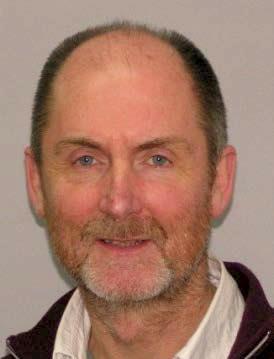Creator of the Sound Foundations Phonemic Chart, Adrian Underhill, regales us with tales of extreme teaching, improvisation and all that jazz ...

Tell us a little bit about yourself ...
Well I’ve been in ELT since 1973, and it has been a very rich experience. During that time I’ve been an improvising musician, playing jazz regularly in pubs and restaurants. I guess many teachers find things go best when spontaneity enters the scene, though even now that is not explored in teacher training. As an improvising musician I’ve had a regular playground for exploring spontaneity, how it arises between people, and its link to creativity, learning and fun!
In five words, how would you describe yourself?
I thrive on learning, especially when it’s with other people, and when a communal spontaneity starts to flow ...
How did you start your writing career?
In 1980 I wrote a workbook for the new edition of the Oxford Advanced Learners Dictionary. I wrote another (better!) one for the Macmillan Dictionary in 2002.
In 1990, along with Jill Florent, Tim Bowen, Jonathan Marks, Graham Impey, Jim Scrivener and my brother Nic, I started the Macmillan Teacher Development Series, later to become Macmillan Books for Teachers. That was a real learning adventure, still continuing.
What’s the most interesting place you’ve taught in?
The most interesting places for me have been any of the groups where there is some real learning starting to sizzle and everyone gets drawn in. As regards geographic places, ones that come to mind just now are: Brazil, under the shade of a mango tree; upstairs in a pub in Hastings Old Town; in Ushuaia in the Southernmost primary school in the world (according to them), on the Macmillan stand at the Portonovo conference in Italy; on the roof of a small building in Bhubaneswar, India, at dusk; and in an unheated, sub-zero classroom in Nanjing, with the windows wide, wearing two layers of gloves and a hat, in front of delightful undergraduates, similarly attired, who chirped ‘we like fresh air’.
What are you most proud of in your teaching and writing career?
Feedback from participants in face-to-face workshops. And seeing the Sound Foundations phonemic chart in classrooms round the world.
What’s your most embarrassing teaching moment?
In 2006 I flew to the US to run a summer programme at SIT in Vermont. But my visa was not in order and I was flown straight back to the UK. In fact I did Gatwick - New York - Gatwick in 22 hours. When I got home I had to phone Susan Barduhn at SIT and say, 'Susan, I’m not where you think I am, and you’ll have to take my programmes. Sorry.' I did get a visa, but too late for SIT.
What’s your favourite joke?
Here’s one I like. It turned up on a University website several years ago where researchers claimed it was the funniest joke in the world. In spite of that it does make me chuckle. Here’s my version:
Holmes and Watson are on a camping holiday. One night they climb into the tent and go to sleep. A bit later:
Holmes: Watson! Look up above and tell me what you see!
Watson: Ahh … I see the stars, the Milky Way, Orion’s Belt, the planets in their orbit, and the heavens in all their glory ...
Holmes: Precisely Watson. And what do you deduce?
Watson: Ahh Holmes ... that we are but a small drop in the magnificence of God’s eternal creation.
Holmes: You fathead Watson! The tent’s been stolen!
What are your tips for becoming an ELT author?
Go easy on the words. Find the sweet spot where less really is more. And stay in touch by teaching or training very regularly.



No comments yet